What is there to say about Lucien Soulban besides the fact that he’s got one of the coolest names in the game writing industry? Well, I could go into his extensive video game credits (Watch_Dogs 2, Rainbow Six: Siege, Far Cry 3&4 and many more) or I could talk about his tabletop RPG writing (such as Orpheus, or his extensive work on Mutants and Masterminds). Then again, I could mention his fiction, or I could just say that he’s one of the most talented writers I know and someone I am proud to call a friend. So it is with great pleasure that I give you Five For Writing with Lucien Soulban
 1-What are the differences for you between writing fiction and writing games?
1-What are the differences for you between writing fiction and writing games?
Ooof, you’re really starting with a “no-easy-answer” right off the bat here. This question has so many moving parts… and you’re smirking. I know you, Richard, you know this isn’t easy to answer and you’re smirking because you’re pleased with yourself. Okay, brother, bearing in mind there’s so much more I could be sharing….
Writing games lies in “interesting” and fluid territory because it’s constantly at the mercy of the technology and business models that drives the industry, and narrative has to adapt alongside it. Fiction is at the mercy of its publishing mediums and distribution networks, but aside from adjusting voice and content to cater to more modern audiences, it’s got its methodology pretty well nailed down, while videogames have to change the very way in which they tell stories.
When narrative became a serious component of production teams, we looked to Hollywood to define our goalposts, but it was mostly linear storytelling. Open world and persistent open world shifted that model again, and then battle royals and team-based shooters and monetization* shook the trees even harder. It was difficult enough that some big companies decided that “single-player games are dead….” Each time the industry re-oriented itself, it’s demanded a near polar shift in narrative structure to adjust and reprioritize what story means in those instances. And writers have to prove adaptable in a way that isn’t demanded of fiction writers (and before anyone flies off the handle, yes, fiction writers have a changing and volatile landscape to contend with, but imagine if the very way you wrote and told stories had to change as well).
On the whole, however, there are some elements that never change despite our fluid craft. Very few mediums allow for the exploration of character like fiction does because fiction gives you access to a character’s thoughts. Videogames need to jump through a few extra hoops to do that, and often getting access to a game character’s thoughts eventually betrays the narrative integrity of those thoughts because they’re coupled with artificial gameplay components: “Where do I go next?” “There must be an axe around here to kill that boss,” “hmm, a puzzle. Maybe the answer was something I read earlier,” etc.
In short, any item of investment to make narrative work in a game comes with a price tag, and often times, the only way to justify that price tag is by linking it back to gameplay or level design. Thus, our subtext is dominated by contrivance. What fiction can do with a deft and authentic hand, videogames have to work at to create the authentic inner world of their characters.
In today’s market, however, where video game writers have an easier time over fiction writers is that we don’t need to brand ourselves or to pitch work with an eye on creating a full-on IPs. All that stuff is already frontloaded for us. We have marketing teams that do that and our branding and IP is generally built around gameplay. We have a relatively quantifiable customer base that lets us know how many units we can sell and whether they’re into the content we’re creating. Sure, it means steering said content in specific directions to accommodate the brand, but it doesn’t all fall on our shoulders. The burden is shared and even alleviated thanks to the experts we work alongside.
 Naturally, that dovetails nicely into the big difference between writing for games and writing fiction… persistent group input. Writing fiction, you’re in this wonderful little bubble, working on your own stuff until it’s done and until you’re ready to share it. Video game writing is constantly scrutinized and evaluated whether you think it’s ready or not. In fiction, the job of the first draft isn’t to stand up to scrutiny… its only job is to get written. The precision comes after that. The story and the novel come after that. Hell, I even read once that Pixar doesn’t know the final themes of its movies until the first draft is written. In video games, a complete first draft of the script isn’t an option. You’re getting feedback from the moment your writing is put to the page, and everyone has an opinion. Everyone. Every. One. If you ever suffered from imposter syndrome, imagine that inner critic has an external chorus verbalizing some of your worst fears about yourself and your ideas. It’s an ongoing battle as people are constantly pointing out the very issues you’re struggling to prognosticate and solve.
Naturally, that dovetails nicely into the big difference between writing for games and writing fiction… persistent group input. Writing fiction, you’re in this wonderful little bubble, working on your own stuff until it’s done and until you’re ready to share it. Video game writing is constantly scrutinized and evaluated whether you think it’s ready or not. In fiction, the job of the first draft isn’t to stand up to scrutiny… its only job is to get written. The precision comes after that. The story and the novel come after that. Hell, I even read once that Pixar doesn’t know the final themes of its movies until the first draft is written. In video games, a complete first draft of the script isn’t an option. You’re getting feedback from the moment your writing is put to the page, and everyone has an opinion. Everyone. Every. One. If you ever suffered from imposter syndrome, imagine that inner critic has an external chorus verbalizing some of your worst fears about yourself and your ideas. It’s an ongoing battle as people are constantly pointing out the very issues you’re struggling to prognosticate and solve.
*Caveat time… this isn’t about the storytelling methods being used by Indie studios, but rather what Trip-A and Quad-A games chase as money milking ventures.
2-You started in tabletop RPGs. What did you take from that experience that has helped you in your other writing endeavors?
There’s a high degree is intersectionality between every writing discipline you tackle and its application elsewhere. That’s the nature of writers, right? Cannibalizing knowledge to Frankenstein ourselves? Learning playwrighting in university and continuing to read movie scripts and plays helped me create better scenes for games without relying on camera shots to convey a moment. Working on tabletop RPGs, however, taught me a number of valuable skills, whether I was an editor, a developer, or a writer.
The editor part was I got my mistakes out of the way by practicing on poor RPG writers before I learned what not to do (seriously sorry, White Wolf writers… didn’t intend to sharpen my blunt skills on your sharp talent). It gave me the skills to provide proper feedback to my team… telling the writer what they needed not only to adjust the material at hand, but to change their approach for the future. It also taught me how to keep my ego out of the way and not advocate for rewriting text in my own voice.
When to comes to video games, the lesson learnt from my tabletop years was to leave space for the player. The player matters and is often an unspoken protagonist. It’s an oldie but a goodie in terms of examples, but nobody talks about their gameplay experience in relation to the character. Nobody says “Master Chief jumped out of his Warthog and threw a sticky grenade on the bumper so it exploded inside the bunker.” ‘I’ the player did all this, and the player will recount that story as “I jumped out and I threw a sticky grenade.”
That means whenever I craft narrative in video games, the player’s experience is foremost in my mind. They are the people who will own the protagonist, not me. So I have to consider how to create stakes that motivate protagonist and player alike. I have to create antagonists that reach through the screen to threaten or discomfort the player somehow without triggering them with bargain basement stakes. The situations have to be understood and universal for the players. And then all that feeds back into my own fiction as I engage with the reader of my novels. How do I tell the story beyond the protagonist’s experiences?
Finally, as a developer, working on games taught me a lot about world building. A universe with its unique “physics” must exist beyond the backdrop of the levels your players are racing through. Not only do they need to understand how that world can exist, but you need to find elegant ways of making that universe relevant and cohesive but without drowning them in exposition. You need to find tricks to impart and reinforce that universe’s logic through passive means until the player/reader absorbs it all through things like subtext and mood and characterization. Fiction writing can help in this way, through principles of how and where to weight your descriptions, but tabletop design creates the most solid framework for creating a world with movement rather than a world frozen by the shutter. Naturally, what you can apply to video games and tabletop games as world building elements, you can then apply to fiction… the cohesion over overarching logic.
 3-Have you ever thought about going back to tabletop? Why or why not?
3-Have you ever thought about going back to tabletop? Why or why not?
HA! Did I leave and nobody tell me? I still do work for tabletop games when I can, though I stepped away from contracts during COVID. Working for a video game company that was 3 hours behind me, finishing later in the evening to accommodate their work hours, and then decompressing two feet away from my workstation was mentally and emotionally exhausting, and I quickly recognized the dangers of doing additional contracts during quarantine. But yeah, I love tabletop games and it remains at the heart of who I am as a geek. Writing for tabletop games is not only familiar territory, but it’s also an exercise in joy for me. I get to create something without constant supervision or scrutiny, and I have time (within reason) to craft something that is more or less intact and cohesive before anyone lays eyes on it. Most importantly, I get to write up to my audience, assuming for complex decision-making and theory crafting and reading comprehension. It’s not to say that games or fiction dumb things down, but there is the reality that you’re opting for a wider market share and that market share is in the millions of players. That changes how you make the material accessible and the requirements behind suspension of disbelief. That said, tabletop games (especially as a freelancer), is definitely a hand-to-mouth existence, and me still writing for that industry is definitely an exercise in privilege. I do it because I can afford to do it, because of video games. I know far too many people scrambling and struggling to make ends meet with freelancing, so if I had to do it for survival, my answer would likely be different.
4-You’re currently working on a Dungeons and Dragons video game. What’s your favorite D&D monster, and why?
I know you, Dansky. You want me to say Neo-otyugh, but I refuse. Mind Flayer has always been my favorite. From the moment I saw the image of an Illithid, it stuck with me as this frightening opponent and it resonated with me as the first creature of true horror I’d seen in D&D. Sure, dragons can breathe a variety of cool elemental attacks and are scary, but the Illithid was the first creature for me that stepped outside of that Judeo-Christian mythology box and became something sinister and terrible. That also explains why my runner-up critter is a Beholder. Sadly, in the competition, the Beholder lost out in the Swimming Suit portion of the competition, so the Mind Flayer gets the coveted crown and scepter.
5-Back in the day, we got in trouble when I asked you about gay leading characters in AAA video games. Where do you think we are now compared to then?
Hooboy, we did, didn’t we? We upset some people’s misperceptions about themselves on that one. I was off about the timing when I said it would be about a decade, though I got the Naughty Dog part right as being one of the companies open and unapologetic about their leading character being LGBTQIA+. And I have to give mad love and props to Square Enix for their “Life is Strange” series. I think when it comes to characterization, story, and overall quality of writing, their benchmarks are miles ahead of many narrative-driven games. I keep thinking back on that moment, however, on that question you asked and the situation I was in at the time. You think that when shit hits the fan, it’s all coming from one direction, but nope. One fan, multiple poop trajectories, and a lot of bruised egos.
There was a lot of positive LGBTQIA+ representation already when I made the comment, and I should have caveated my response in regards to the work already being done out there. That’s obviously not where the majority of flack came from, though. Some folks were definitely not happy with my answer, either because I pulled the curtain back on the “wizard” or because I refuted the active spin doctoring or because folks thought I was shitting on their good will; recent news articles and revelations can speak more about the realities of all that if you know how to read between the lines.
So, compared to then? We’re far more ahead of the curve then I expected. Companies that led the charge on representation haven’t collapsed back in upon themselves in failure, and in succeeding, they’ve emboldened the more risk-adverse among their peers. I’ll be honest… I do worry that some companies in and out of the industry are just doing this to get on the bandwagon, to cash in on a cause that’s been deemed “safe” or acceptable. I hope they understand why proper representation matters instead of painting by the numbers, but kudos to those genuinely working towards it. My paranoid brain keeps waiting for the other shoe to drop, on that pendulum to swing back hard, but… I think it’s no longer a matter of when will we see this or that. The dam’s broken wide open, and now it’s a matter of reach rather than “will-it-won’t-it.”
My final answer… we’re in a good place, but it’s still precarious. Some people get why representation matters, but I think the harm will come from companies buckling and back peddling under the complaints and orchestrated bad-reviews campaigns, or those companies waiting on their inclusion dividends to pay off in sales.
Huge thanks to Lucien for giving such thoughtful and generous answers, even if he doesn’t like neo-otyughs. (Don’t know what those are? Don’t ask.) Until next week, then, when I’ll sit down with John “Deathginger” Goodrich. See you then!
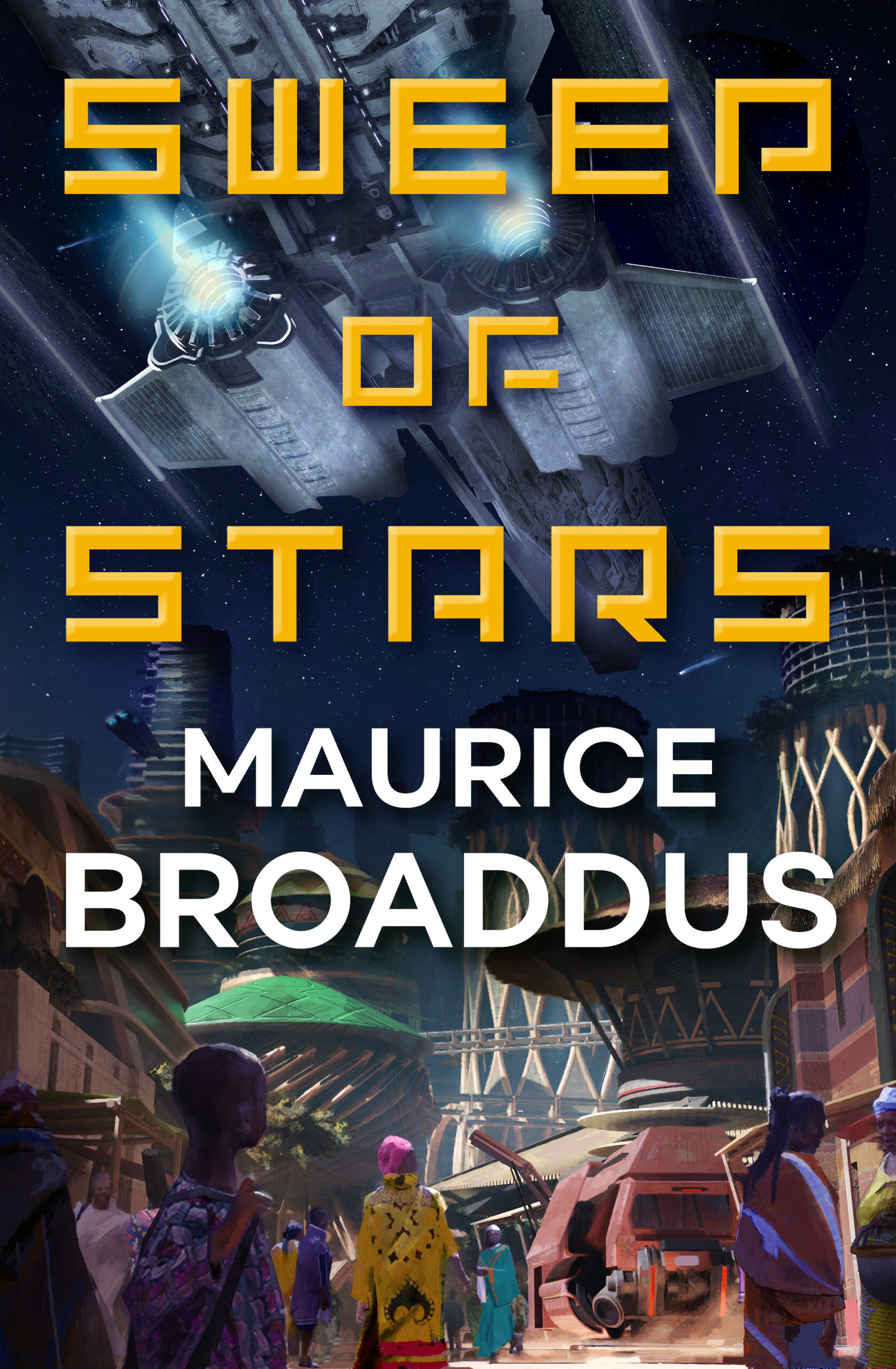 1-How exactly does one
1-How exactly does one 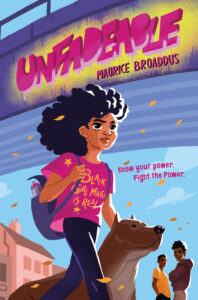 4-Religion is a strong theme in your life. How do you see it affecting your fiction?
4-Religion is a strong theme in your life. How do you see it affecting your fiction?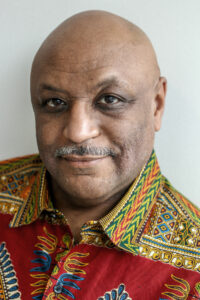 5-You do a lot of community outreach. How is your writing bound up in that?
5-You do a lot of community outreach. How is your writing bound up in that? 1-What’s interesting to you about transgressive horror?
1-What’s interesting to you about transgressive horror?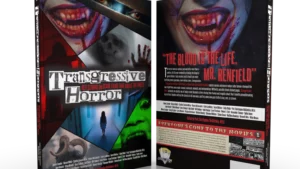
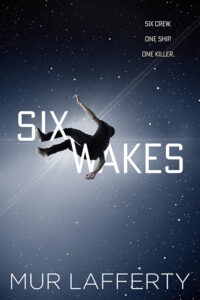 2-Six Wakes is probably your most critically acclaimed work. What was the inspiration for it?
2-Six Wakes is probably your most critically acclaimed work. What was the inspiration for it?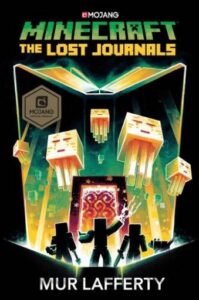
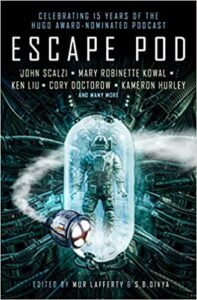 5-You’re an award winning podcaster. How does the podcasting intersect with your writing?
5-You’re an award winning podcaster. How does the podcasting intersect with your writing?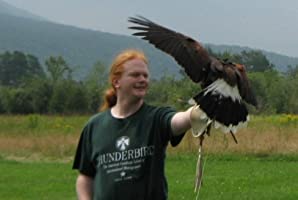 to his credit. He lives in Vermont, which is possibly the last state that Godzilla would destroy if given the chance, and he was kind enough to sit down for five (plus one bonus) questions. Here’s Five For Writing with John Goodrich:
to his credit. He lives in Vermont, which is possibly the last state that Godzilla would destroy if given the chance, and he was kind enough to sit down for five (plus one bonus) questions. Here’s Five For Writing with John Goodrich: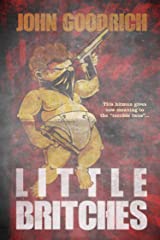 2-Why would a toddler take up a life of crime as a hitman?
2-Why would a toddler take up a life of crime as a hitman? 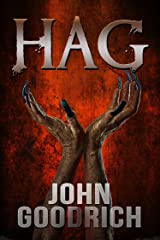 4-You live in Vermont. What impact does that have on your writing?
4-You live in Vermont. What impact does that have on your writing?  1-What are the differences for you between writing fiction and writing games?
1-What are the differences for you between writing fiction and writing games? Naturally, that dovetails nicely into the big difference between writing for games and writing fiction… persistent group input. Writing fiction, you’re in this wonderful little bubble, working on your own stuff until it’s done and until you’re ready to share it. Video game writing is constantly scrutinized and evaluated whether you think it’s ready or not. In fiction, the job of the first draft isn’t to stand up to scrutiny… its
Naturally, that dovetails nicely into the big difference between writing for games and writing fiction… persistent group input. Writing fiction, you’re in this wonderful little bubble, working on your own stuff until it’s done and until you’re ready to share it. Video game writing is constantly scrutinized and evaluated whether you think it’s ready or not. In fiction, the job of the first draft isn’t to stand up to scrutiny… its  3-Have you ever thought about going back to tabletop? Why or why not?
3-Have you ever thought about going back to tabletop? Why or why not?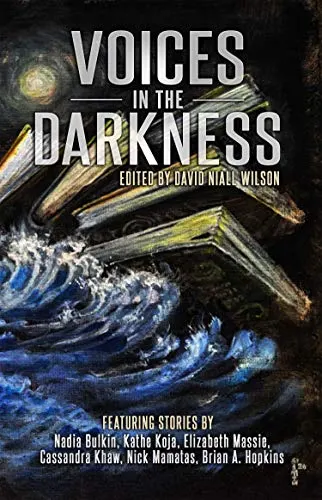 1-We first met when you were writing White Wolf tie-in novels. was it fun to play in
1-We first met when you were writing White Wolf tie-in novels. was it fun to play in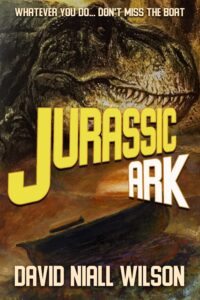 4-These days you wear two hats: writer and publisher. Which do you prefer, and why?
4-These days you wear two hats: writer and publisher. Which do you prefer, and why?